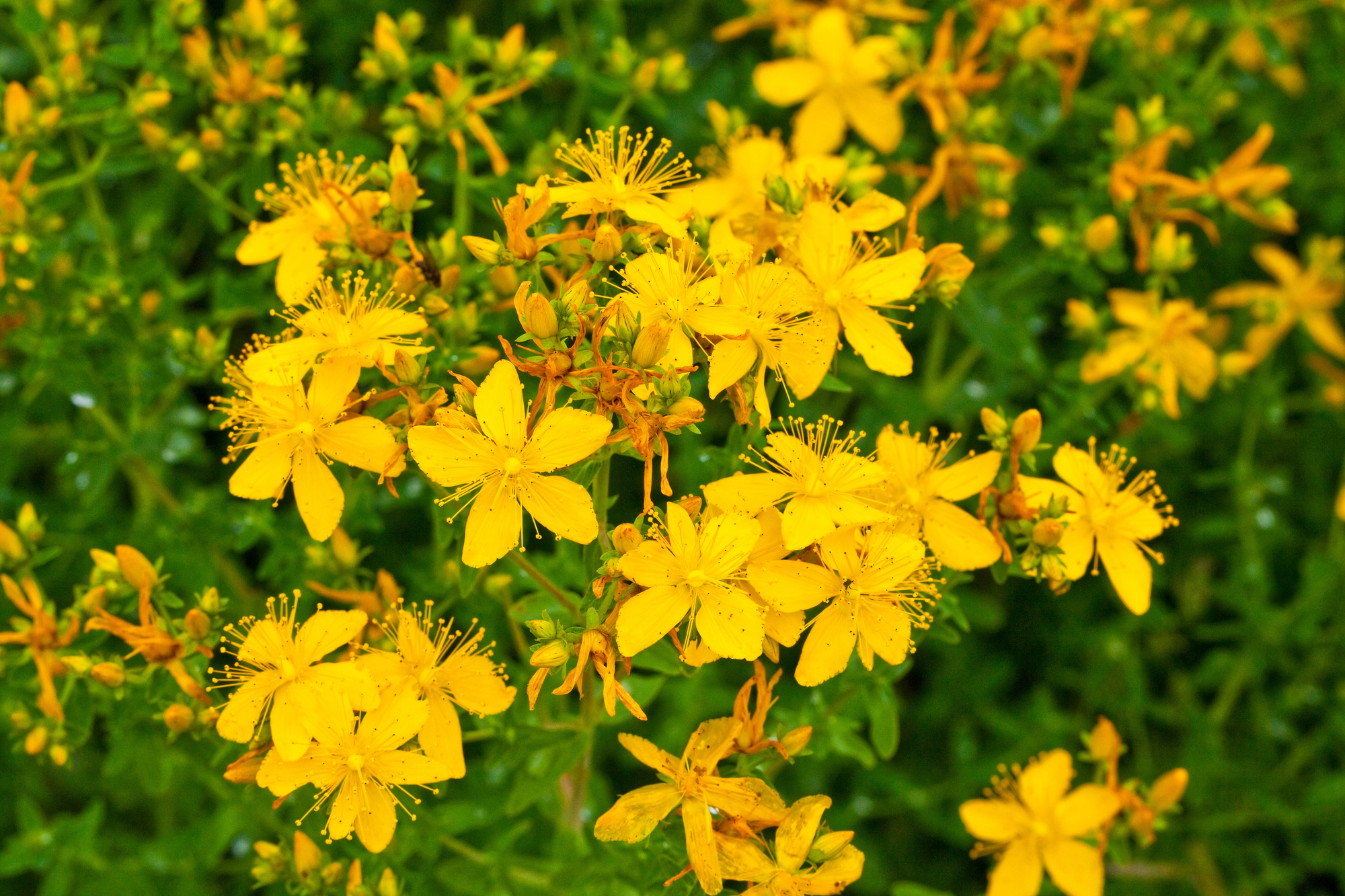Search online for “natural antidepressants” and St. John’s wort will will most certainly pop up. The herbal supplement, sold in capsules, tablets, teas, and tinctures, has long been promoted as a remedy for depression. People who are reluctant to take synthetic antidepressant drugs like Prozac are often drawn to this “natural remedy.”
“I often hear from patients curious about natural alternatives like St. John’s wort,” says Dr. Sharon Batista, an assistant clinical professor of psychiatry at Mount Sinai Hospital and a practicing psychiatrist in New York City. “While this herb does have legitimate antidepressant properties, I generally advise against its use due to concerns that outweigh its potential benefits.”
What is St. John’s wort?
St. John’s wort, or Hypericum perforatum, is a plant with bright yellow, star-shaped flowers that blooms around June 24th—St. John’s Day—which is how it got its name.
In ancient Greece, it was used for wound healing, as a diuretic, and for menstrual disorders. Since then, it has also been used as a folk remedy for a wide range of ailments, but nowadays it is most often taken for depression.

Is there evidence that it helps with depression?
Studies on the effectiveness of St. John’s wort for depression have found mixed results. In some clinical trials, St. John’s wort worked no better than a placebo for treating minor and major depression. Other studies, including a review of 29 international trials, suggested it may be as effective as standard prescription antidepressants for treating mild to moderately-severe major depression—and with fewer side effects.
Interestingly, results varied by location. Studies from German-speaking countries, where St. John’s wort has a long history of medical use, gave more positive results than those from the United States.
“The research is mixed and not strong enough [for St. John’s wort] to be FDA approved like its antidepressant counterparts,” says Dr. Simon Faynboym, a psychiatrist at Neuro Wellness Spa in California.
Researchers believe that St. John’s wort increases levels of chemicals such as serotonin, dopamine, and norepinephrine in the brain—similar to how prescription antidepressants work.
Is it safe?
If you already take prescription antidepressants, taking St. John’s wort can lead to a potentially life-threatening increase in serotonin, psychiatrists warn. Symptoms of ‘serotonin syndrome’ include agitation, diarrhea, fast heartbeat, high blood pressure, hallucinations, and increased body temperature.
St. John’s wort also increases levels of liver enzymes like CYP3A4, which speed up the breakdown of many medicines in the liver. Because of this effect, St. John’s wort can drastically weaken medicines such as birth control pills, some HIV drugs (like indinavir), some cancer medications (like irinotecan), warfarin (a blood thinner), digoxin (a heart medication), cyclosporine (used to prevent the body from rejecting transplanted organs), and oxycodone (a pain medicine).
These drug interactions are so concerning that France has banned all St. John’s wort-containing products.
“Most patients are surprised to learn that these interactions can be life-threatening,” says Batista.
Related Health Stories
Dr. Ritu Goel, an integrative psychiatrist in private practice in California, advises anyone taking any kind of prescription medicine to consult their doctor or pharmacist before even considering using St. John’s wort.
She also cautions that “it may increase sun sensitivity, trigger mania in individuals with bipolar disorder, and is not recommended during pregnancy or breastfeeding.”
What else to know
“If we choose to try it, I generally recommend a standardized extract of approximately 300 mg taken three times daily, totaling 900 mg per day, with a follow-up assessment after 6-8 weeks,” she says. “We also ensure there’s a plan in place if side effects occur or mood symptoms worsen.”
Another thing to keep in mind is that dosing varies widely among manufacturers. “As with many supplements, quality control is not as tightly regulated as in prescription medications and there is no standardized dosing,” says Faynboym. “When I discuss this with patients, I let them know this means that potency and purity may be inconsistent, and it’s unclear exactly how much is in each capsule.” For this reason, Goel suggests choosing brands that undergo third-party testing to verify that the product actually contains what it says on the label.
Goel points out that it may take several weeks before the benefits of St. John’s wort are noticeable.
Bottom line
Goel reminds her patients that while St. John’s wort can help some people with mild to moderate depression, “it’s not a miracle cure, and it’s not suitable for everyone.”
The problem with St. John’s wort, says Batista, is that “it acts like a drug, but isn’t regulated like one.” Until standardized formulations and long-term safety data become available, she believes the risks of using St. John’s wort aren’t justified, especially when there are well-studied and safer alternatives.
Faynboym advises anyone considering St. John’s wort to speak with their healthcare provider first about the risks and benefits, especially if they are already taking other medications. “Herbal remedies should be approached with the same caution and respect as prescription drugs,” he says.
This story is part of Popular Science’s Ask Us Anything series, where we answer your most outlandish, mind-burning questions, from the ordinary to the off-the-wall. Have something you’ve always wanted to know? Ask us.






